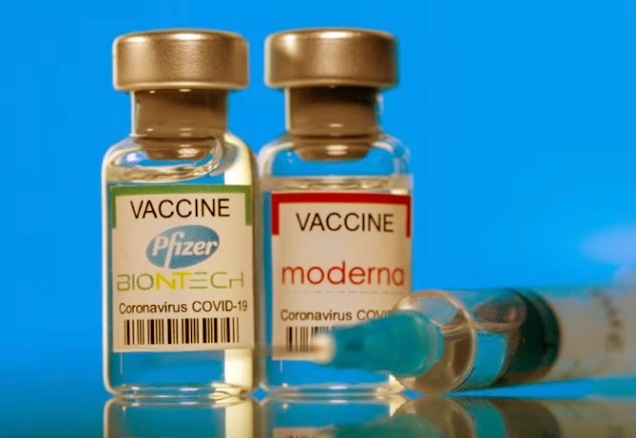Nikhil Prasad Fact checked by:Thailand Medical News Team Jul 28, 2025 6 months, 3 weeks, 1 day, 13 hours, 9 minutes ago
Medical News: A group of researchers from WuXi Biologics in Shanghai, China, is sounding the alarm about a hidden danger in many COVID-19 mRNA vaccines and other modern drug delivery systems. Their findings reveal that polyethylene glycol, or PEG, a common component in mRNA-LNP (lipid nanoparticle) vaccines, may trigger serious allergic reactions in some people—and this risk may be increasing with repeated exposure.
 Urgent Call to Replace PEG in All Vaccines After Alarming Allergy Findings
Urgent Call to Replace PEG in All Vaccines After Alarming Allergy Findings
Since the rollout of mRNA-based vaccines like Pfizer-BioNTech and Moderna, many people have reported side effects ranging from mild rashes and breathing difficulties to full-blown anaphylaxis. This
Medical News report highlights the growing concern that these reactions could be linked to PEG, a chemical used to stabilize and protect the delicate mRNA in the vaccines.
Why PEG Is a Problem
PEG has long been used in cosmetics, drugs, and food, and was once thought to be harmless. But the WuXi Biologics researchers—Jinxing Song, Dihan Su, Hongbing Wu, and Jeremy Guo—warn that the situation has changed. Repeated exposure to PEG through mRNA vaccines or other PEG-modified drugs can trigger the immune system to produce anti-PEG antibodies. These antibodies can attack the PEG in future treatments, leading to faster drug clearance from the body or, worse, severe allergic responses.
Alarmingly, more than 40% of healthy individuals already have some level of these anti-PEG antibodies. Women appear to have higher levels than men. As global vaccination campaigns continue and PEG-containing products remain common, the risk of serious reactions is rising.
Troubling History of PEG in Clinical Trials
The report details several cases where PEG has caused trouble in drug development. For example, BIND-014, a cancer drug that used PEG to help deliver treatment to tumors, failed in clinical trials due to immune reactions. Similarly, the Revolixys kit, which used a PEGylated molecule for blood thinning, was pulled after patients had allergic responses linked to anti-PEG antibodies.
Even some COVID-19 vaccine recipients with no history of allergies experienced sudden anaphylaxis, prompting the FDA to issue warnings and recommendations. In fact, the rate of anaphylaxis with some mRNA vaccines is estimated to be 10 times higher than with previous vaccines.
Finding Safer Alternatives
The authors suggest that it’s time to retire PEG from vaccine and drug delivery systems. They outline safer options, including natural substances like chitosan and synthetic alternatives like polysarcosine (PSar). Early experiments using PSar have shown promising results, with reduced immune reactions and better safety profiles.
Other suggestions include changing PEG’s structure to branched forms, adjusting terminal groups, or lowering the dosage in each injection. However, the authors stress that complete removal of PEG is th
e best long-term solution.
The study ends with a strong recommendation for pharmaceutical companies to screen patients for anti-PEG antibodies before administering PEG-containing treatments and to accelerate research into PEG-free formulations.
The study findings were published in the peer reviewed journal: Pharmaceutics
https://www.mdpi.com/1999-4923/17/6/798
For the latest Vaccine News, keep on logging to Thailand
Medical News.
Read Also:
https://www.thailandmedical.news/news/covid-19-post-spike-syndrome-treatment-brings-shocking-patient-recoveries
https://www.thailandmedical.news/news/new-protocol-to-treat-covid-19-vaccine-spike-disease-or-longvax-syndrome
https://www.thailandmedical.news/news/new-study-warns-of-neurological-damage-by-sars-cov-2-spike-proteins-from-both-covid-19-infections-and-covid-19-vaccines
https://www.thailandmedical.news/articles/vaccine-news
